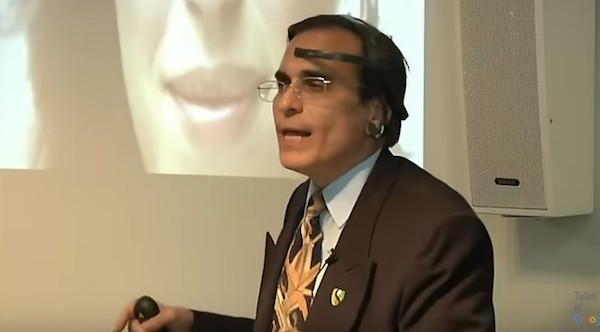Could dying from old age be just another disease humanity can cure?
While it’s not a consensus view just yet, Venezuelan futurist Jose Luis Cordeiro says the evidence suggests death and aging really aren’t the inevitable facts of life most people imagine.
A concept called “Longevity Escape Velocity” refers to the theoretical point where technology will be able to extend a person’s lifespan at a faster rate than they age. So even as you grow one year older, your lifespan might increase by two years.
Cordeiro’s colleague David Wood predicts the watershed moment will happen before 2040, while Harvard Professor George Church tips 2037.
But Cordeiro believes it will happen much earlier, in 2030.
“If we make it to 2030, we will basically live long enough to live forever because we will gain one year per year we survive and more and more,” he says.
“People still don’t understand that aging is a curable disease and that we will cure it in 20 years.”
He believes that by 2045, we will start to be able to reverse aging using rejuvenation therapies on cells and organs, making us as “young” as we choose to be.
If that all sounds far-fetched, Cordeiro makes a compelling case that it’s at least possible.
Artificial intelligence has enabled a massive expansion in our ability to analyze the human genome to understand the key ingredients of longevity and to consider huge arrays of drugs and compounds to zero in on effective treatments.

He says there are already “immortal” cells in the human body and creatures on Earth that never age. If we can unlock their secrets, we can all live as long as we want.
Longevity and the Death of Death: Jose Luis Cordeiro
While it’s not mainstream, Cordeiro is also far from a crank. A fellow of the World Academy For Art and Science and a board member of the Millennium Project, he studied at MIT and received a PhD from Simon Bolivar University. He’s also a candidate for the European Parliament in the upcoming 2024 elections.
He laid out the evidence for his ideas in a 2023 book, The Death of Death, co-authored with Symbian creator Wood.
It looks at recent advances in AI, tissue regeneration, stem cell treatments, organ printing and genetic therapies. Futurist Ray Kurzweil said the book “explains clearly how we might soon reach Longevity Escape Velocity and live long enough to live forever.”
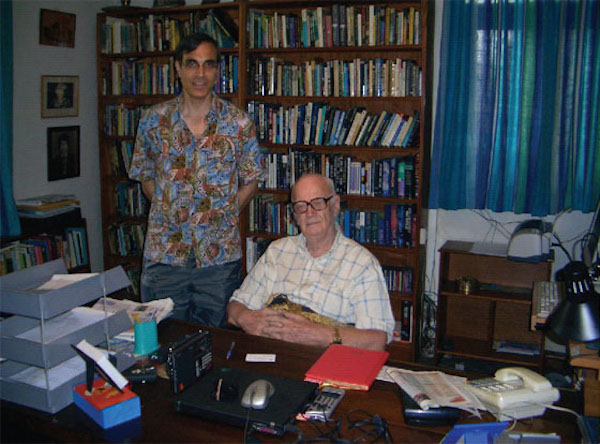
Of course, the concept of biological immortality is a divisive one. Many people believe its pie in the sky fantasy, while others are horrified at the thought of living forever.
“People tell me, ‘I don’t want to live forever,’ and I say, ‘Well, you can die anytime, you know. Death is very easy. I can help you jump’. This is about the option to not die if you don’t want to. That will be optional by the year 2045.”
Read more: Crypto leaders are obsessed with life extension. Here’s why
If it all sounds a bit sci-fi, Cordeiro points out that mobile phones and landing on the moon were both science fiction concepts right up until they weren’t.
“I believe we are very close to all these technologies. We know they are scientifically possible in terms of longevity,” he says. “You have the same genome today as when you were 10 years old or when you will be 60 years old. So if you have the same genome, why were you young and why will you be older?”
Telomeres, telomerase and longevity
Cordeiro explains that while there are about 10 different causes of aging, “one of the most important ones is the shortening of the telomeres.”
You may have heard the factoid that every cell in your body is replaced on average every seven years. It’s not strictly true, as the 30 trillion cells in the human body are replaced at different rates. Some neurons and heart cells last your whole life, while skin cells might last a few weeks, and cells in your stomach lining are replaced within five days.
But cells have a built in timer called the Hayflick Limit, after scientist Leonard Hayflick who discovered in 1961 that human cells can only divide between 40–60 times. They then enter senescence.
This is regulated by the telomeres on the end of each chromosome, which grow shorter with each division until the cell can no longer divide. However, some cells, such as stem cells and cancer cells, have mechanisms to maintain telomere length and can divide indefinitely.
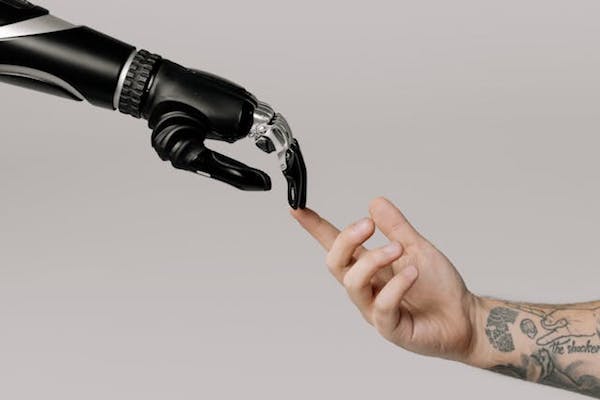
Biologically immortal cells in the human body
Cancer cells produce an enzyme called telomerase, which grows the telomeres continuously. This allows the cancer to keep dividing until it kills the host.
“They are biologically immortal cells,” he says, adding that reproductive or germ cells that make sperm in men and eggs in women are similarly biologically immortal.
“So we have two types of cells, somatic cells, which are 99.9% of the body and a little tiny, tiny part, which is called the germ cells. They do not age because they do the same as cancer. They produce telomerase, and they keep on dividing indefinitely.”
Elsewhere in nature, the Turritopsis dohrnii, also known as the “immortal jellyfish,” has figured out how to revert to its polyps form and begin again with new cells.
“So to me, as an engineer, we know immortality already exists in nature. So we only need to discover how nature did it. This is a very fundamental point. We just need to replicate what nature does but better and for the whole body.”
Ethereum co-founder Vitalik Buterin, who has donated tens of millions to longevity research, also believes that “aging is an engineering problem.”
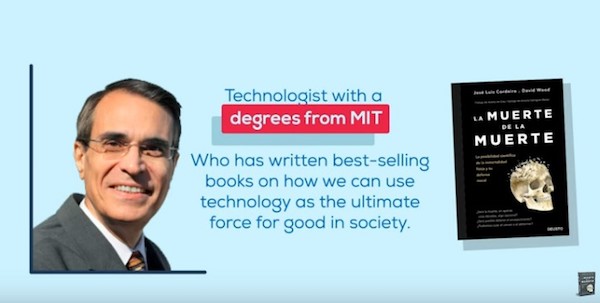
Regenerative medicine and longevity
We seem to be on the cusp of understanding how to solve those engineering problems, says Cordeiro. The 2012 Nobel Prize-winning Japanese scientist Shinya Yamanaka “discovered genes that control aging, and he was able to rejuvenate cells,” Cordeiro explains. Yamanaka was able to transform adult skin cells into stem cells.
“We know this is possible today. So this is not science fiction.”
In 2020, Harvard professor David Sinclair published a study in Nature demonstrating how he’d reprogrammed cells in the retina to make them young again and reverse age-related vision loss.
“Right now, scientists are working on other organs. The skin and then eyes, now heart and lungs on other species closer to humans,” he says.
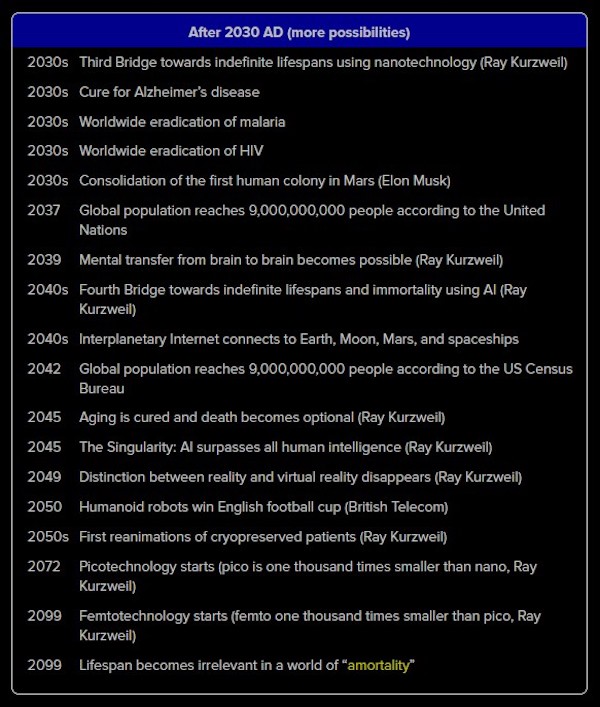
Senescent cells and autophagy’s role in longevity
Senescent cells that no longer divide need to be properly cleaned up by the body’s autophagy process, which literally means “self-eating.” However, this clean-up process can be affected by disease, malnutrition, stress, infection and aging, which poses risks to health. Cordeiro calls them “zombie cells.”
“Some of them do not die completely, and they stay in your body and they are like a rotten apple that rots all the other apples, so you need to get rid of these senescent cells,” he says.
Drugs like Rapamycin and Metformin stimulate autophagy, and Cordeiro predicts numerous other drugs will become available soon. In the meantime, the best approach for most people is to stay healthy and exercise, which stimulates autophagy in multiple organ systems.
A biohack that Cordeiro swears by is to fast three days each month.
“Because this forces the strong cells in your body to eat the weak cells in your body and that includes many cancerous cells. The beginning of cancer cells is not strong enough. So the normal cells eat them, so really, I recommend everybody to do autophagy.”
Artificial intelligence in medicine and longevity
The human genome consists of three billion base pairs of DNA, organized into 23 pairs of chromosomes. There are about 23,000 genes. Analyzing that enormous volume of data for just one person is a mammoth undertaking, much less multiplying it by even a small subsection of people on Earth.
But AIs are well suited to combing through such enormous data sets without ever growing tired and enable us to compare the results with the genomes of different mammals to work out why mice live for two years, humans for 90 and whales for 200.
Cordeiro is an adviser to the Rejuve project, which uses AI to analyze the genes of the Methuselah Flies, which have been bred to live five times longer than normal flies. With humans sharing about 60% of the same genome as flies, the team hopes to find longevity lessons that can be applied to humans. It has already produced a promising potential treatment for Alzheimer’s.
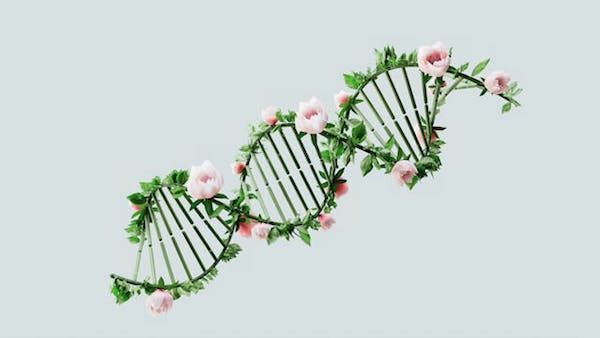
Another example can be seen with Google DeepMind’s AlphaFold, an AI that is able to predict how proteins are created. This has huge implications for drug discovery and understanding how diseases work. The technology was used during the pandemic to better understand the virus’s biology and to help design treatments and vaccines.
“It was written that it would take centuries for humans to be able to discover how the proteins were created. AI did it quickly,” Cordeiro explains.
“So AI will help us to understand all diseases, to find some compounds that will let us live longer and longer, and also to discover the genetic basis of aging itself.”
Digital longevity: Nanobots and mind-uploading
Cordeiro is a fan of Kurzweil’s “Three Bridges to Immortality.” The first “bridge” is our present-day health knowledge, which is built around healthy living, preventative medicine and biotechnology.
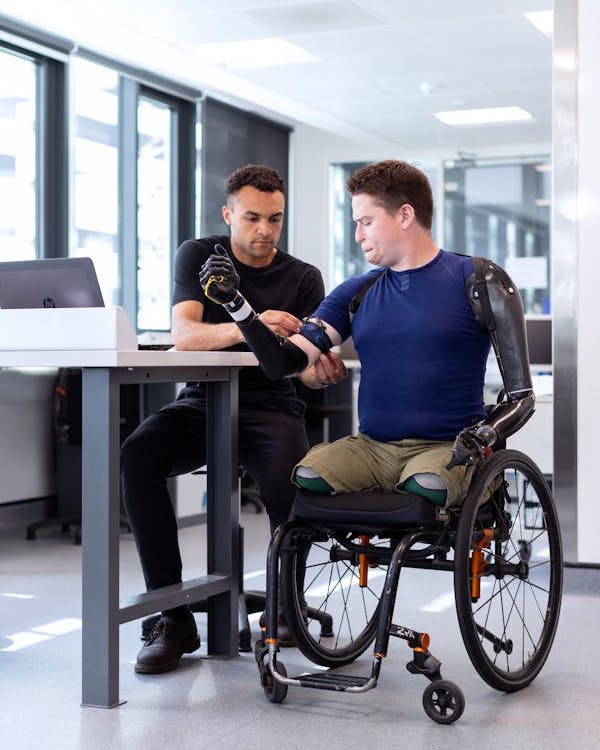
He says we’re entering the second bridge, a biotech revolution built around genetic and tissue engineering and advanced regenerative medicine.
The third and most speculative bridge leans into the concept of the Singularity — the point where technological growth becomes exponential — and posits a future in which nanobots repair our bodies and help our minds merge with AI to enhance intelligence and capacity.
“These nanorobots will clean the cholesterol, the plaque in our brains and will connect our brains to the cloud,” he says. “Artificial intelligence is fundamental.”
Although nanobots have been a popular feature of science fiction since the 1990s, scientists have yet to get any further than inventing nanoparticles and nanomaterials. But AI is already able to interpret and read our brain waves when we think about an image or a piece of music, and Elon Musk’s Neuralink interface can connect human software to computers.
Digital immortality within two decades
As a result, transhumanists like Cordeiro believe that humans could become “digitally immortal” within two decades by uploading our minds to the cloud.
“I think we will transcend the human condition once we become super-intelligent […] if we can have unlimited memory, unlimited computational capabilities, unlimited communication capabilities,” he says.
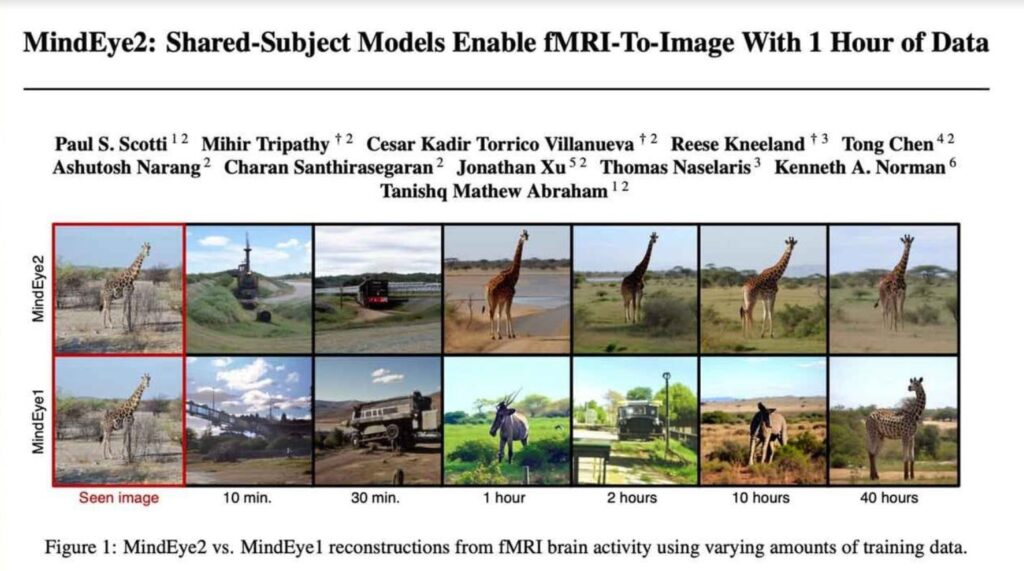
While the whole concept of mind uploading sounds weird and scary to most people, transhumanists actively look forward to the next stage of humanity’s evolution.
“Of course, we will transcend our humanity,” he says. “And that is okay. I’m not afraid of that.”
He said that humanity only exists today because chimpanzees evolved into something more over the eons, and so we shouldn’t be frightened of taking the next step.
“I think we are going to become something else, something better, more intelligent, more longevity, and happier people. So I’m in favor of that.”
week.

The post Longevity expert: AI will help us become ‘biologically immortal’ from 2030 appeared first on Cointelegraph Magazine.
